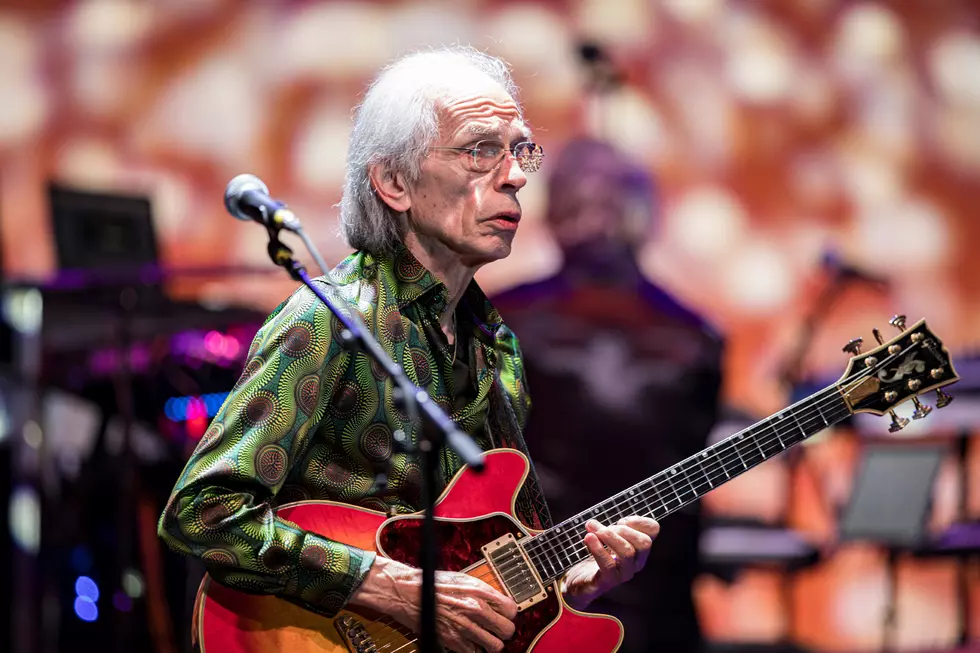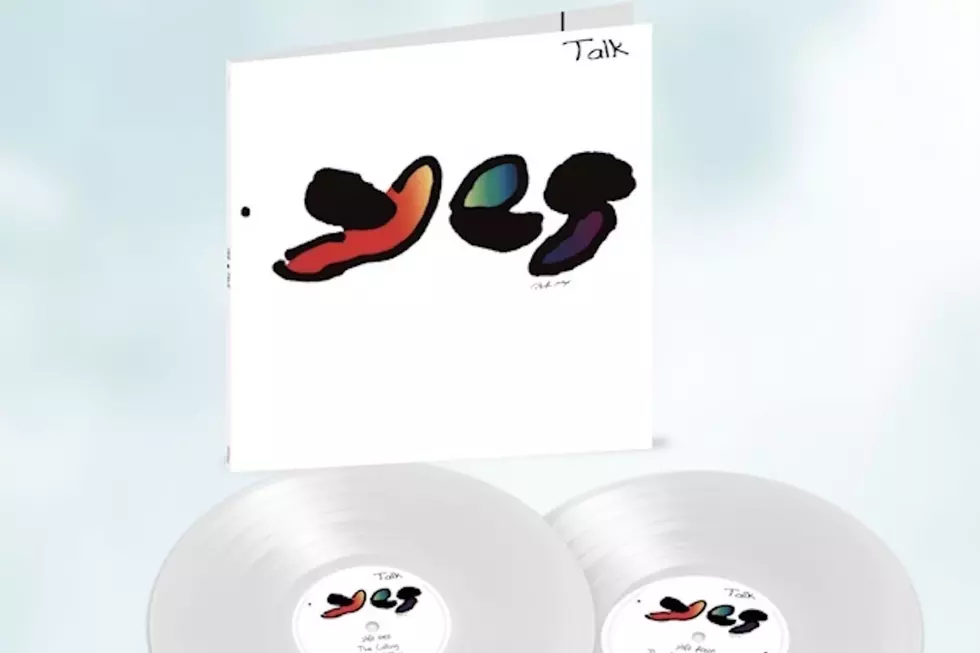
Yes’ Geoff Downes Talks ‘Drama’ Tour, Cruise to the Edge and More: Exclusive Interview
This is a strange time in Yes history. The band's latest tour – featuring the entirety of 1980's Drama and half of the 1973's divisive Tales From Topographic Oceans – was the prog-rock band's first in 44 years without drummer Alan White, who sat out to recover from back surgery. And, overall, their shows have continued to feel somewhat vacant after co-founding bassist Chris Squire's death last year from leukemia complications.
But Yes have rolled with the punches, as they've always done – recruiting temporary replacement drummer Jay Schellen (previously of Yes-related acts Asia and Circa), who joined longtime guitarist Steve Howe, singer Jon Davison, newly added bassist Billy Sherwood and keyboardist Geoff Downes.
Downes has a distinct perspective on the band's latest jaunt. He, along with vocalist-producer Trevor Horne, originally joined Yes for the Drama LP; he left following the subsequent tour but rejoined for 2011's Fly From Here, now serving as one of the band's elder statesmen.
As the tour winds down, the keyboardist spoke to Ultimate Classic Rock about the musical challenges of dusting off these underrated albums, the band's 2017 edition of floating festival Cruise to the Edge and the future of Yes. (He says they're definitely hoping to record a follow-up to 2014's Heaven & Earth.)
How has it been performing with Jay? I'm assuming he had to learn a lot of material very quickly.
It was a very last-minute thing when Alan had to have this operation. I'd worked with Jay before, and Alan knew him from his stuff with Circa, and Jay had some stuff with Billy and Chris. So he was a good choice, I think, and he was familiar with a lot of the Yes music. He came in and nailed it.
It must have been weird for everyone playing with Alan – it's the band's first tour since 1972 without him.
I think he was really disappointed, but his health dictated otherwise. I just checked with him a half-hour ago, and he was saying, "I wish I could have been there, but I'm going to do what the doctors tell me to do." It was out of his control. It's a slow recuperation process, but I know he'll pull through and be fine. We'll have him back in the driving seat.
Yes had previously never played Drama in full. I'm sure that's been interesting for you since that album marked your first entry into the band.
The last few years in Yes, I've been largely playing music I wasn't [originally] associated with, so to be able to have a whole album that I was a part of is really quite something else. In terms of the Tales side of things, I'm not really familiar with that album, so it's been a bit of a learning curve to get my head around that. It's been an interesting time for the band. We've done a number of these album series shows over the last few years, and it's been pretty good for the audience because they get to hear these albums in the exact order they remember them.
Topographic Oceans is a very divisive album. Some fans absolutely hate it, while others think it's one of the band's best.
Yeah, it's a bit mixed. Some fans think it's over-indulgence, and others think it's the holy grail of Yes music. There is that difference of opinion, but in terms of it being part of the Yes legacy, it's a very important album – as I think Drama is in its own way. They're both very important but for very different reasons.
The tension with touring Topographic is one of the reasons Rick Wakeman left the band the first time around. What's your personal opinion of the album? Do you find it just as interesting as the "classic" albums like Close to the Edge and Fragile?
It's different. It involves a lot of concentration because it's two 25-minute pieces we're playing, sides one and four. It's interesting to see how they put that all together. It's almost like a classical piece, with the sections that move in different ways.
I know Jon Anderson wasn't keen on playing the Drama material live when he was in the band, for fairly obvious reasons. Since you have the other Jon in the fold, and since you're back in the group, do you think that's opened doors to play material you wouldn't have been able to otherwise?
It shows that it's not necessarily who's in the band – it's about the sound those individuals create at a given time. This is a pretty significant high point of the band in terms of musicianship, and it's a great band to be a member of.
Have you considered bringing Jon Anderson and other Yes alumni on Cruise to the Edge to do some kind of one-off thing where the two Jons are singing together, with you and Rick both up there playing keyboards? Would the band be open to doing some kind of big reunion like that? It feels like cruise would be the perfect place for it, along with maybe the Rock and Roll Hall of Fame.
Jon Anderson, Trevor Rabin and Rick Wakeman will be going out there on their own tour in October. And we'll be going out around the cruise and into the spring. Fans will also go see us all individually, either Yes or other bands. And Asia, hopefully we'll get that back up and running soon. That's the idea. We've been working on new material, and we have a whole album planned.
Are you involved much at all in the selection of the cruise bands? The lineup is so eclectic, covering so many time periods and styles of progressive rock – I wondered if you've discovered any new artists from the cruise that you didn't know before.
They make suggestions, and we have the final say. If it's someone we don't feel would be that suitable or trouble, we have the say of who comes on board. But I feel this one's particular strong: Steve Hackett, Kansas, John Wetton. There's a whole host of great musicians on this one.
Yes Albums Ranked Worst to Best
More From Ultimate Classic Rock









